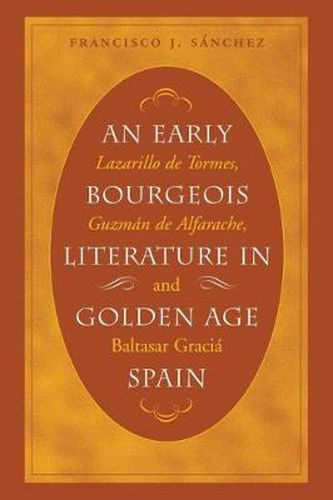Readings Newsletter
Become a Readings Member to make your shopping experience even easier.
Sign in or sign up for free!
You’re not far away from qualifying for FREE standard shipping within Australia
You’ve qualified for FREE standard shipping within Australia
The cart is loading…






Tracing the beginnings of a bourgeois literature in Golden Age Spain, Francisco Sanchez examines works by Baltasar Gracian (1601-1658), major picaresque texts–particularly Lazarillo de Tormes (1554) and Mateo Aleman’s Guzman de Alfarache (1599-1604)–and contemporary writings in which political economists and jurists look at new economic and political circumstances. Using the term repAblica to describe an economic sphere of social life under the constrictions of both the monarchy and the privileges of the seignorial system, Sanchez investigates notions of person, culture, and life in these texts. He also analyzes the formation of a private sphere of social action and the emergence of a literary sphere to represent early bourgeois values and sensibilities. Sanchez argues that this literature represents culture as intellectual and verbal skills for the social and economic advancement (life) of a Christian but secularized person.
$9.00 standard shipping within Australia
FREE standard shipping within Australia for orders over $100.00
Express & International shipping calculated at checkout
Tracing the beginnings of a bourgeois literature in Golden Age Spain, Francisco Sanchez examines works by Baltasar Gracian (1601-1658), major picaresque texts–particularly Lazarillo de Tormes (1554) and Mateo Aleman’s Guzman de Alfarache (1599-1604)–and contemporary writings in which political economists and jurists look at new economic and political circumstances. Using the term repAblica to describe an economic sphere of social life under the constrictions of both the monarchy and the privileges of the seignorial system, Sanchez investigates notions of person, culture, and life in these texts. He also analyzes the formation of a private sphere of social action and the emergence of a literary sphere to represent early bourgeois values and sensibilities. Sanchez argues that this literature represents culture as intellectual and verbal skills for the social and economic advancement (life) of a Christian but secularized person.